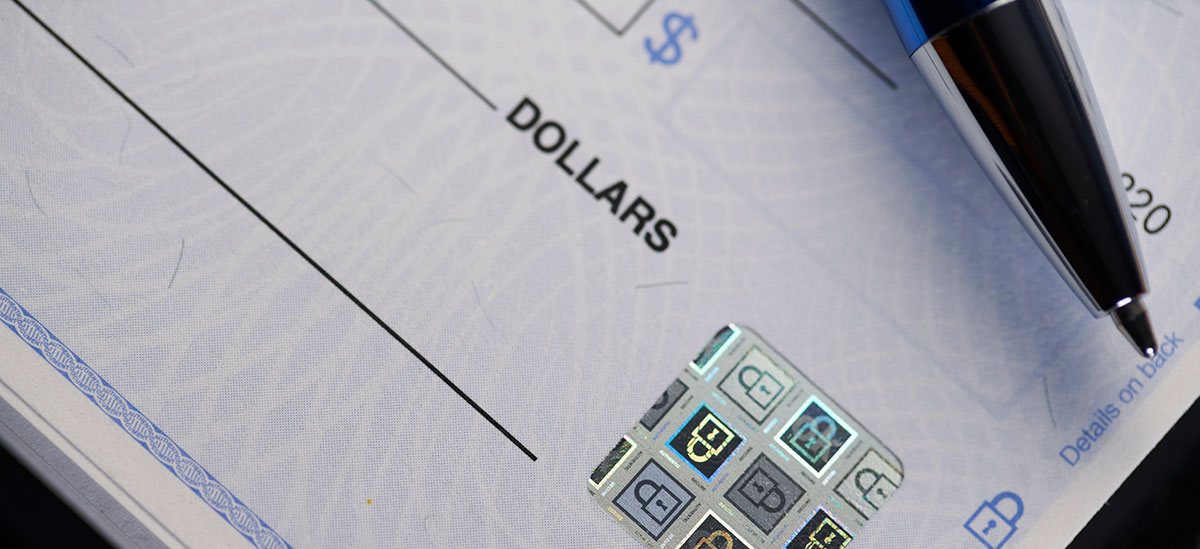
Banks saw an 84% increase in check fraud in 2022, as part of a larger trend where fraud tactics in general are on the rise, according to the Financial Crimes Enforcement Network (FinCEN).1
This uptick in check fraud is likely due, in part, to increased security measures around digital payments, leading criminals back to an old, tried-and-true method, according to Mark Kwapiszeski, PNC Head of Enterprise Fraud.
Also contributing to this increase are organized criminal consortiums working together to share best practices and team to engage in check fraud campaigns. One of the tools in their arsenal is “check washing,” where they take stolen checks, use chemicals to wash them (removing the payee and amount) and then rewrite the payee and amount.
“With the vast number of social media sites available, it’s becoming easier to access and buy stolen check information,” PNC Security Analyst Oana Johnson says. “Even if fraudsters are not sharing personal information, they’re sharing practices that have worked for them. This information sharing is also contributing to the increased activity.”
COVID stimulus checks triggered an uptick in this activity, as well. Criminals are prone to stealing checks related to government assistance programs, such as Social Security payments and unemployment benefits, according to PNC Retail Fraud Operations Group Manager Spencer Shea. Once they’ve stolen the initial check, criminals can continue to exploit their victims by using the personal identifiable information for future fraud schemes, such as credit card fraud or credit account fraud. And bad actors are continuously finding ways to leverage technology to enhance their operations, Shea says.
PNC, for its part, is leveraging technology to combat fraud, while remaining focused on continuing to provide positive user experiences. But, in the end, it is critical that customers actively partner with us to tackle this issue. A June 2023 J.D. Power “Banking and Payments Intelligence” Report, based on responses from 4,000 retail bank customers nationwide, claims that less than half of those surveyed say they take steps to protect themselves against fraud. Most notably, only 44% say they check their statements for suspicious activity and only one-third monitor their account activity. Greater customer awareness and vigilance could make an enormous difference in helping to thwart crimes and make check fraud a far less profitable venture for criminals.2
For its business customers, PNC offers Positive Pay, an automated check fraud prevention service. Positive Pay allows customers to monitor checks processed for payment against their accounts and reject unauthorized transactions before losses occur.
Individuals can mitigate the risk of check fraud by being more guarded and taking preventative measures to reduce the risk of falling victim to check fraud:
- Check your account balances, transactions and statements often to identify possible cashed checks that you didn’t write, and set up Alerts on your account, so your bank can flag anomalous events for you. Rapid identification is the best way to beat the bad guys.
- When you write a check, follow the trail, and confirm receipt. If the payee doesn’t receive it, contact your bank immediately and ask to stop payment. Time is of the essence.
- Make sure the checks you purchase have security features. For example, PNC checks offer antifraud features, such as security inks and chemical protection that protect against check washing.
- When filling out a check, use a pen with indelible ink – preferably a gel pen – which permeates the fibers on the check and cannot be removed with chemicals.
- If you suspect a check has fallen into the wrong hands, call your bank right away. Then file a police report and contact the person or business that was meant to receive the check. If you were making a payment, you may need to arrange to make another payment to prevent late fees or interest.
For more information and tips on customer security, visit PNC’s Security and Privacy Center, which includes best practices on reporting fraud or identity theft.



